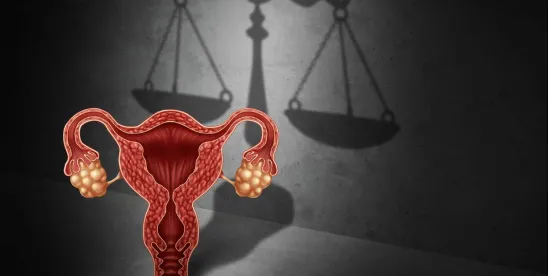In a January 2, 2025 decision in CompassCare et al. v. Hochul, a Second Circuit panel vacated a permanent injunction issued in April 2022 that halted the requirement that New York State employers include a notice in their employee handbooks regarding the prohibition on discrimination based on reproductive health care choices. As a result, employers statewide will once again be required to include such notice in their handbooks.
Background
The notice requirement, which first took effect in November 2019, was part of a broader amendment to the New York Labor Law adding a new Section 203-e prohibiting employers from accessing information on employees’ or their dependents’ reproductive health without prior consent, as well as generally prohibiting discrimination and retaliation against an employee “because of or on the basis of the employee’s or dependent’s reproductive health decision making, including but not limited to, a decision to use or access a particular drug, device or medical service.” To that end, employers that maintain an employee handbook were required to include in the handbook a notice of employee rights and remedies under the law.
District Court Issues Permanent Injunction
As we previously reported, following the enactment of the law, several faith-based employers challenged Section 203-e in its entirety, claiming First Amendment violations. While the majority of the claims were previously dismissed, in a March 29, 2022 decision, a Northern District of New York court found the notice requirement compelled the plaintiffs to deliver a message contrary to their religious beliefs as they relate to reproductive choices including birth control and abortion because “Plaintiffs’ handbooks . . . represent Plaintiffs’ statements to their employees about the rules that govern conduct in the workplace, the values of the organizations, and the religious perspective that guides the organizations’ operations.” The district court permanently enjoined the notice requirement statewide.
The Second Circuit’s Decision
Following a lengthy appeals process, the Second Circuit held that the notice requirement “is similar to many other state and federal laws requiring workplace disclosures” and that while “the policy judgment that motivated [Section 203-e] may be ‘controversial’ in the same way that the policy judgments underlying Title VII, or minimum wage laws, are controversial . . . the existence and contents of [Section 203-e] – and an employer’s obligation to comply with it – is not itself controversial.” The panel further noted that the notice requirement does not restrict employers from otherwise communicating to employees “in the handbooks or elsewhere, their moral, political, and religious views, their expectations for employees, and even their disagreement with [Section 203-e].” The panel in turn vacated the permanent injunction. However, while also upholding the dismissal of most of the First Amendment claims, the Second Circuit revived the plaintiffs’ claims related to expressive association – that is, an implicit right under the First Amendment “to associate with others in pursuit of a wide variety of political, social, economic, educational, religious, and cultural ends.” Citing Slattery v. Hochul, 61 F.4th 278 (2d Cir. 2023), in which the Second Circuit held that an employer may have an associational rights claim if Section 203-e “forces [the employer] to employ individuals who act or have acted against the very mission of its organization” (emphasis in original), the panel held that because the district court “did not have the benefit of the Slattery opinion – which is now binding precedent – when it issued the orders challenged in this matter” it was appropriate to remand for the district court to “determine whether any Plaintiff has plausibly alleged an expressive association claim.”




 />i
/>i
